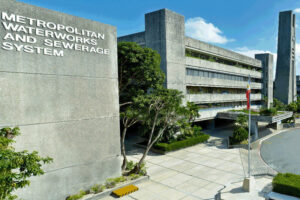Investing in health workers

Only about 10% of the country’s health workers serve in rural areas, leaving some municipalities without an acceptable number of health workforce.
As a result of these significant variations in access to and quality of health services, the Philippines faces a difficult path to eliminate tuberculosis (TB) and achieve their family planning goals.
TB affects about 2.5 million Filipinos and is the country’s sixth leading cause of death and illness, inflicting huge costs on the family household and the economy. Meanwhile, meeting the population’s reproductive health intentions is also a challenge in the country, where 49% of unmarried, sexually active women and 17% of married women have an unmet need for family planning.
A discussion on the needs of health workers is appropriate as the country celebrated World Health Worker Week in early April. With the theme “Invest in Health Workers,” it urges policymakers to allocate long-term funding and implement policies that protect and support health workers everywhere.
A program of the United States Agency for International Development (USAID) implemented in October 2017 to June 2020, the Human Resources for Health in 2030 in the Philippines final report detailed such findings to strengthen recruitment, deployment, development, retention and performance management of the health workforce. Its ultimate goal is to improve access to quality TB, family planning and maternal and child health services for vulnerable populations.
Health workers form the foundation of an efficient and resilient health system to address population health needs, according to the report. It acknowledged the Department of Health (DoH) for recognizing the need to increase investments in the health workforce to achieve national goals in TB, family planning and other disease burdens of concern.
It also noted how the passage of the Universal Health Care Act in 2019 opened up the opportunity to accelerate support for the National Government to develop a Human Resources for Health Master Plan (2020-2040), and to optimize the health workforce as the backbone of a healthcare system that is accessible, accountable, affordable and reliable.
Over the course of three years, the master plan has introduced evidence-based World Health Organization (WHO) workload indicators of staffing need method to help the DoH in determining optimal staffing number and distribution among health facilities and support the development of new national staffing standards for primary healthcare.
The DoH is now institutionalizing the methodology and cascading it to various levels of the health system to help guide local governments and partners on optimum numbers of health workers required per cadre and level of care. This will greatly support government efforts to revitalize primary level health facilities and provide universal healthcare.
The master plan has put in place a sustainability roadmap to help prepare for the transition of Global Fund-supported human resources for health for TB. The Global Fund TB grant supports the government to fill key gaps in the health workforce needed to achieve the country’s ambitious TB targets.
In partnership with the DoH and local stakeholders, Human Resources for Health 2030 also supported the creation of the national DoH Academy e-Learning portal and an efficient learning management platform that enables public and private sector health workers to access free of charge practical skill-building courses with continuing education accreditation, so they can deliver TB, family planning and other primary care services according to national standards of care.
Human Resources for Health 2030 supported the drafting of the 2020–2040 Human Resources for Health master plan of DoH that serves as the long-term strategic plan for the management and development of health workers in the country. Its guiding principle is to provide qualified health workers with rural background with scholarships in learning institutions near their places of origin; learning and development opportunities; and improved working conditions with their protection and well-being in mind.
Following the coronavirus disease 2019 (COVID-19) pandemic, one of the key lessons learned is the importance of a well-functioning and well-motivated health human resource that will be able to confront challenges of changing healthcare situations and a sudden spike in demand for quality healthcare.
Teodoro B. Padilla is the executive director of the Pharmaceutical and Healthcare Association of the Philippines, which represents the biopharmaceutical medicine and vaccine industry in the country. Its members are in the forefront of research and development efforts for COVID-19 and other diseases that affect Filipinos.




